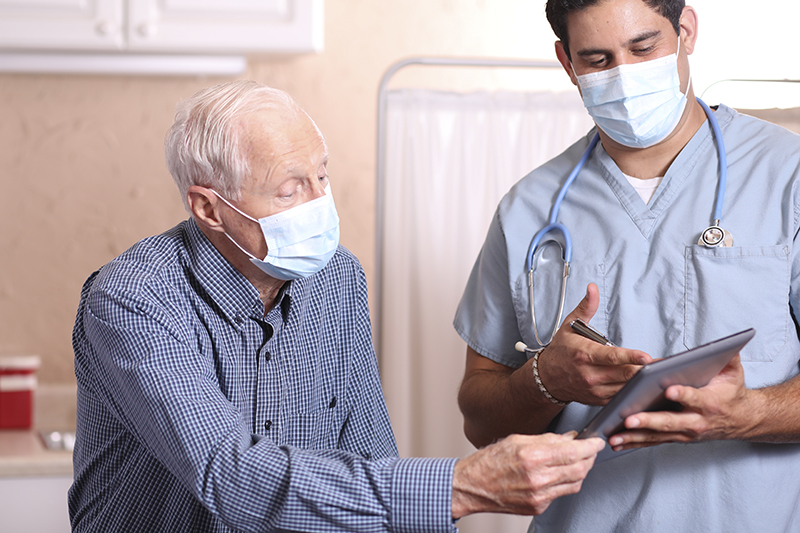Elective Medical Procedures: Assessing the Safety for Seniors


Determine the safety of elective medical procedures with these tips.
The COVID-19 pandemic put our world on pause, including, among many other activities, medical appointments and procedures. In fact, nearly half of all adults either cancelled or put off routine medical care and elective medical procedures since the coronavirus crisis began, leading physicians to become concerned about the consequences.
As we tentatively strive for a new normal, it’s important to talk with your doctor about any procedures you might have been considering pre-pandemic, and to get answers to the following questions to help you gauge the safety of following through with them now.
- Is the medical facility where I’ll be treated also treating COVID-19 patients, and are the same medical staff who will care for me also taking care of them? If so, what precautions are in place to ensure my safety?
- What are the facility’s cleaning/disinfecting policies?
- Will I need to be tested for COVID-19 before my procedure?
- Are medical staff being tested for COVID-19? If so, how often?
- Do I need to wear a mask? Gloves? Any other personal protective equipment?
- Are there any items that are restricted from being brought with me, such as clothing, books, a phone or laptop?
- Can I complete paperwork in advance?
- May I wait outside or in my car until I’m called in for my procedure?
- Can a family member or caregiver accompany me?
- Is follow-up provided in person, or can I utilize telehealth?
There are also post-procedure considerations to think through. Many people face concerns about the possibility of contracting COVID-19 after being in the hospital, so talk with your doctor about the need to self-monitor for symptoms, and for recommendations on any extra precautions you may want to take, such as avoiding contact with others for a period of time, wearing gloves or a mask at home when others are there, extra sanitizing measures to take, etc. Your doctor may recommend taking your temperature and oxygen levels at home. If so, be sure to obtain a thermometer and pulse oximeter.
Once you’re comfortable with the answers you’ve received and with the assurance that the procedure is safe to schedule, contact Hired Hands Homecare. Our transitional care services can help ensure everything is taken care of before, during, and after your procedure, including transportation, picking up prescriptions and groceries, helping you get settled in back at home and monitoring for any changes in condition, and so much more. You can reach us any time at (866) 940-4343 to learn more about our top-rated Marin senior care and care in the surrounding communities.








Leave a Reply